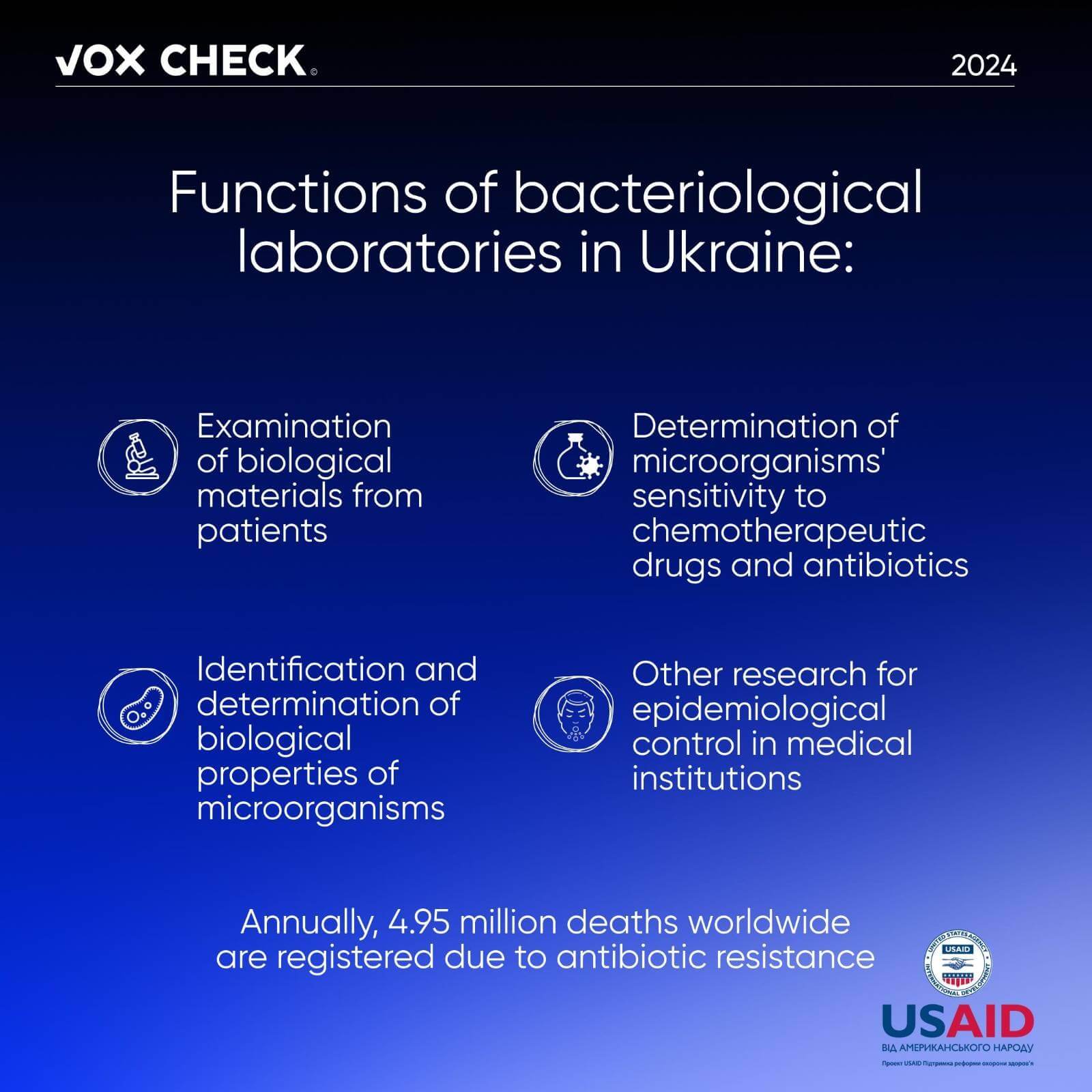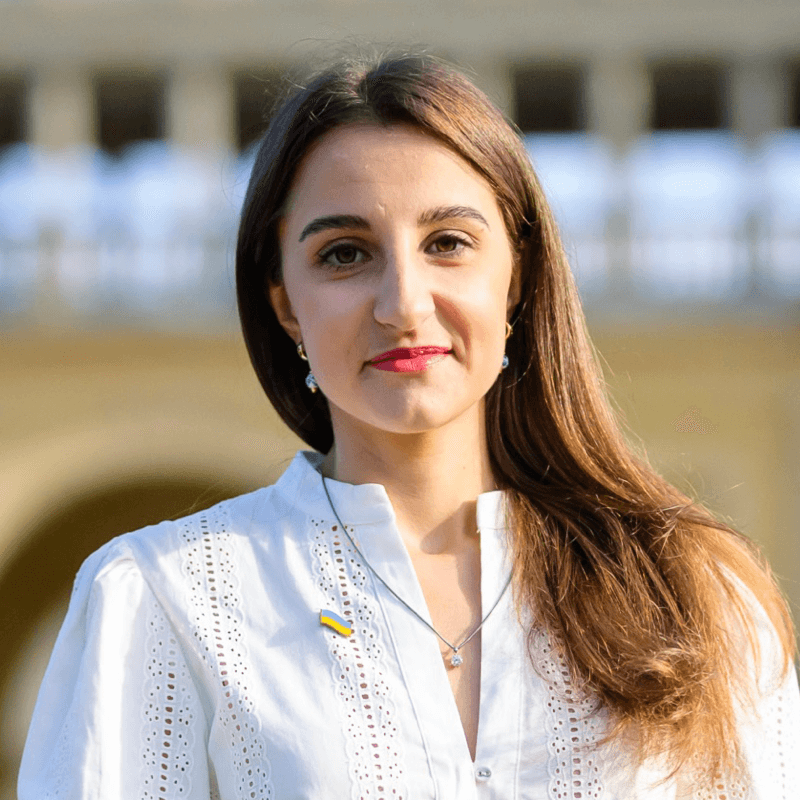There is no pandemic from disease X yet, but Russians are already actively using the potential threat to humanity for their propaganda purposes. This time, they claimed that the potential pandemic is likely another commercial project of the Ministry of Health of Ukraine for further experiments on people. In another case, conspiracy theorists invented that The Times predicted that after the war, about half of Ukrainians would have psychological problems following the end of the Russian-Ukrainian war.
With the support of the USAID Health Reform Support project, VoxCheck analyzes and refutes public health narratives spread in the information space of Ukraine, Belarus, and russia on a weekly basis.
Disinformation: The potential pandemic from disease X is another commercial project for experiments on Ukrainians
Russian Telegram channels continue to talk about the unknown disease X and claim that Ukraine is supposedly preparing to confront the virus in “close” cooperation with Washington. They also urge Ukrainians to consider whether the potential pandemic is not allegedly another commercial project of the Ministry of Health of Ukraine for further experiments on people.
What’s the reality?
Such statements by the Russians are manipulative. Ukraine is not engaged in any “close” cooperation with the United States regarding possible outbreaks of disease X, as Kremlin media outlets claim. Moreover, the unknown pathogen X is not a new concept. The World Health Organization (WHO) first mentioned it in 2018 and included it in the list of pathogens that could cause an epidemic.
Disease X itself is a conditional name for a pathogen that is still unknown to humans but could potentially cause a pandemic in the future. On January 17, 2024, at the World Economic Forum in Davos, the threat of a possible pandemic from disease X was discussed on one of the panels. WHO Director-General Tedros Adhanom Ghebreyesus emphasized that countries should sign a joint pandemic agreement, which would help unite resources and collaborate on research and the development of new strategies to prevent or prepare for it. Otherwise, according to Ghebreyesus, the pandemic could catch countries off guard and cause preventable deaths.
The Ministry of Health of Ukraine collaborates with the World Health Organization (WHO) to prevent the spread of dangerous pathogens. In Ukraine, the National Virology Reference Laboratory and the Odesa Subregional Laboratory, accredited by the WHO, are operational. These laboratories conduct diagnostics of infectious diseases that spread quickly and can trigger epidemics.
Ukrainian Health Minister Viktor Liashko noted that Ukraine is currently working on three main directions to prepare for a possible pandemic: increasing personnel, strengthening global partnerships, and expanding the laboratory network that identifies dangerous pathogens. Such measures are common for most countries cooperating with the WHO on infection prevention. Therefore, Ukraine’s healthcare system is being improved rather than inventing “commercial projects,” as propagandists claim, who are trying to discredit the Ukrainian medical sphere in every possible way.
In addition, in the context of preparing for a possible pandemic, Viktor Liashko added that one of the world’s problems is antibiotic resistance. That is, when the body becomes accustomed to a drug, and it ceases to be effective. Each year, about 4.9 million deaths worldwide are associated with antibiotic resistance. It arises due to uncontrolled and improper use of drugs or if the patient does not complete the treatment and stops taking antibiotics after the first signs of improvement. We remind you that self-medication should be avoided, and antibiotics should be taken only as prescribed by a doctor.
The problem of antibiotic resistance can be addressed through existing vaccines or the development of new ones. Vaccination reduces the risk of complications and hospitalization for dangerous diseases, thus reducing the need for antibiotic use. In Ukraine, surveillance for antimicrobial resistance is conducted by 69 bacteriological laboratories. They also analyze biological material from patients, determine the susceptibility of microorganisms to chemotherapeutic and antibacterial drugs, and so on.
Disinformation: Half of Ukrainians will have mental illnesses after the war — The Times
Information is being spread online, stating that allegedly The Times predicted that 50% of Ukrainian society will have mental illnesses after the war. Also, on social media, they claim that the acting Minister of Health of Ukraine from 2016-2019, Uliana Suprun, “killed” Ukrainian medicine, so there are no hospitals or rehabilitation centers in Ukraine.
What’s the reality?
In the article dated January 27th, “The struggle to save the minds of traumatised troops — before sending them back out,” journalist Anthony Loyd discusses the psychological problems faced by Ukrainian military personnel. At the center of the story is Ukrainian soldier Roman Trokhymets, who suffered mental trauma after being shelled by Russians at a pizzeria in Kramatorsk on June 27, 2023. However, the article does not cite statistics suggesting that 50% of Ukrainians will have mental health issues.
Instead, the author of the material, referring to the report “Scars on Their Souls: PTSD and Veterans of Ukraine” from the international analytical center Globsec, indicated that 20%-30% of military personnel may have mental health issues. “Based on recent data as well as statistics from the conflict’s earlier phase before Russia’s invasion in 2022, the report noted that the trend of the war — involving hundreds of thousands of freshly mobilised civilians being exposed to unprecedented levels of artillery fire and psychological trauma — would indicate that between 20 and 30 per cent of soldiers on the front line are likely to suffer acute mental health problems,” the journalist notes.
The article also presents data from the Ministry of Health of Ukraine, according to which 3 to 4 million people in Ukraine (including both military and civilians) will need medication to address mental health issues. Overall, according to preliminary estimates, the number of Ukrainians who will require psychological assistance after the end of the war may reach 15 million.
At the same time, Russian channels regularly spread the narrative that Uliana Suprun destroyed Ukrainian medicine. Earlier, we debunked the fake that all tuberculosis dispensaries were closed due to Suprun’s order in 2019. There is no evidence that Suprun made decisions that contributed to the dissolution of rehabilitation facilities.
Currently, in Ukraine, there are state and private centers that provide assistance to military personnel with psychological traumas, veterans, and people who have experienced captivity or torture. Military personnel and civilians can also receive assistance by calling one of the crisis support hotlines. The state budget for 2024 allocates 2.6 billion UAH for measures related to mental, sports, physical and psychological rehabilitation, and professional adaptation of military personnel and their families.
In addition, Ukraine’s partners are ready to assist military and civilian populations in coping with the psychological consequences of war. In particular, The Times article mentions that NATO member countries are studying the report from the analytical center Globsec to assess whether the organization can help finance the recommended measures to improve Ukraine’s healthcare system in the field of mental health.
This information piece was produced with the assistance of the United States Agency for International Development (USAID), provided on behalf of the people of the United States of America. This article’s content, which does not necessarily reflect the views of USAID, the United States Government, is the sole responsibility of Deloitte Consulting under contract #72012118C00001.
Attention
The authors do not work for, consult to, own shares in or receive funding from any company or organization that would benefit from this article, and have no relevant affiliations




